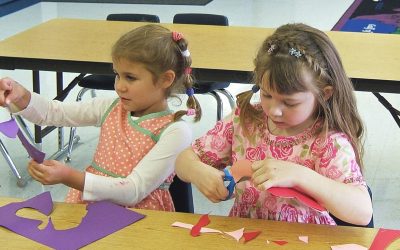The end of the school year invites speculation about the weeks ahead. Will children’s knowledge levels decline? Will the bulk of lessons learned be forgotten? Should kids be required to review course material over the summer to be on top of it all when classes resume?
Summer is a time of creative adventures and playful learning opportunities. Daily activities are less “academic” but nevertheless they can be wonderfully enlightening. And, learning is an ongoing process, even though it may take on different guises or be reflective of changing interests over the summer months. There are MANY ways to help children hone their creative and critical thinking skills while still having lots fun and making the most of summer.
Here are tips for parents who are worried about a possible slump in children’s learning trajectories:
1. READ.
Reading is a gateway to new worlds, and it can strengthen acquired understandings. Talk to kids about what they’ve read over the previous few months, refreshing their memories, and encouraging them to think more about or even extend the material.
“Remember that interesting book you read at school? Who wrote it? Maybe the author has written something else you’d enjoy reading this summer.”
2. BUILD.
Follow up and possibly “next-level” or build upon projects or assignments that sparked curiosity or captured the child’s imagination. Support kids in further developing those creative impulses!
“That bird feeder you designed was really unique. What other animal feeders can you devise? Use creative ideas as a starting point!”
3. CHILL.
Don’t nag kids to reread their notes from the school year. And, don’t engage in scare tactics like telling them they’re sure to forget everything if they don’t review regularly. Adopt and convey a positive attitude.
“I know you’re prepared for next grade. However, when you’re ready I’m happy to help you review stuff. We can chat about how and when, and we have loads of time before school begins again.”
4. RESPECT.
Some kids really enjoy working on school-related things over the summer, finding it challenging, intriguing, and worthwhile. And, they may embrace the concept of being well prepared and at the very top of their game when school starts. Respect your child’s curiosity, and preferences for learning and doing. Adults can help children schedule in time for scholastic pursuits without forfeiting summer-time fun.
“Let’s make a plan to ensure you have opportunities to do everything you want in the weeks ahead.”
5. PLAY.
Enjoy the great outdoors and spend time together. Don’t get waylaid by electronic devices. During the summer scholastic demands can be set aside, and kids can engage more fully in free-spirited play and collaborative exploration, preferably with family and friends.
Play is empowering! It involves physical activity, role-playing, socializing, friendship-building, creative strategizing, sharing, and skill-building. However, it’s also important to show children how to relax, reflect, and maximize quiet moments. This can be beneficial for recharging energy, and for consolidating ideas and then coming up with new ones.
“It’s good to balance busy times with down-time. How do you think we might achieve that balance?”
6. ORGANIZE.
Encourage kids to organize their school materials and store them some place accessible so they’re easy to find and refer to later on.
“Here are some f storage boxes you can use and decorate. And, some colorful folders and marking pens. You can get creative about storing things. Let me know if you need anything else.”
7. STRENGTHEN.
Make note of what may have proved difficult for your child. That is, what material or subject matter might warrant some attention to enable them to feel more competent and confident when classes resume. Your child might share a desire to revisit course material and strengthen their grasp of it. Be resourceful. You could ask if they’d consider connecting with a mentor. You can also brainstorm some exciting activities that will boost skill levels.
“I’m proud of your efforts, and how you persevere when things get tough. Is there anything in particular you want to focus on over the next few weeks? We can explore possibilities that are interesting and fun!”
LAST WORDS
Come fall, teachers will determine where each student is at in the various subject areas, and program accordingly—by clarifying, reinforcing, and building upon previously learned material.
In the meantime, fun and playfulness are keys to a happily productive summer—triggering creative thinking, which in turn acts as a springboard for intellectual growth. Parents can help children stay active and curious over the summer months, encourage kids to find time for reflection, and support them in being organized and ready for the transition back to school.
But hey, September is long way away!
Have a great summer!
AUTHOR’S NOTE:
This blog is an adaptation of a piece that I wrote previously, and that was published at The Creativity Post. (You can find about 100 articles by me on that site, on various topics relating to learning, creativity, children’s well-being, and more!) And, check out IGNITE YOUR IDEAS: CREATIVITY FOR KIDS for tons of family-friendly ways to enhance imagination and purposeful pursuits—any time of year!








